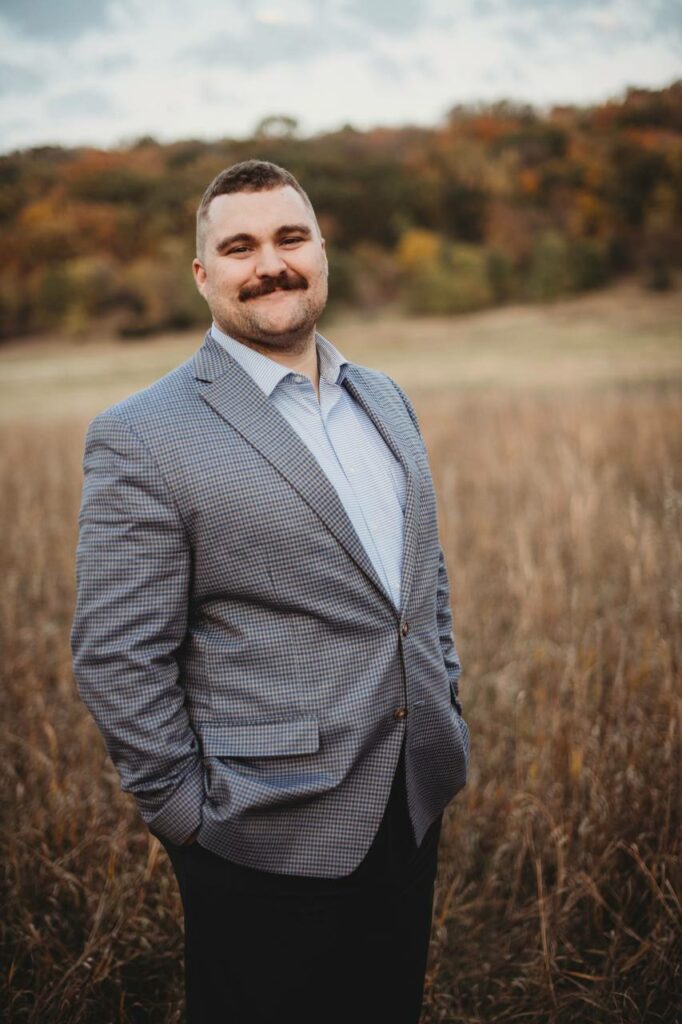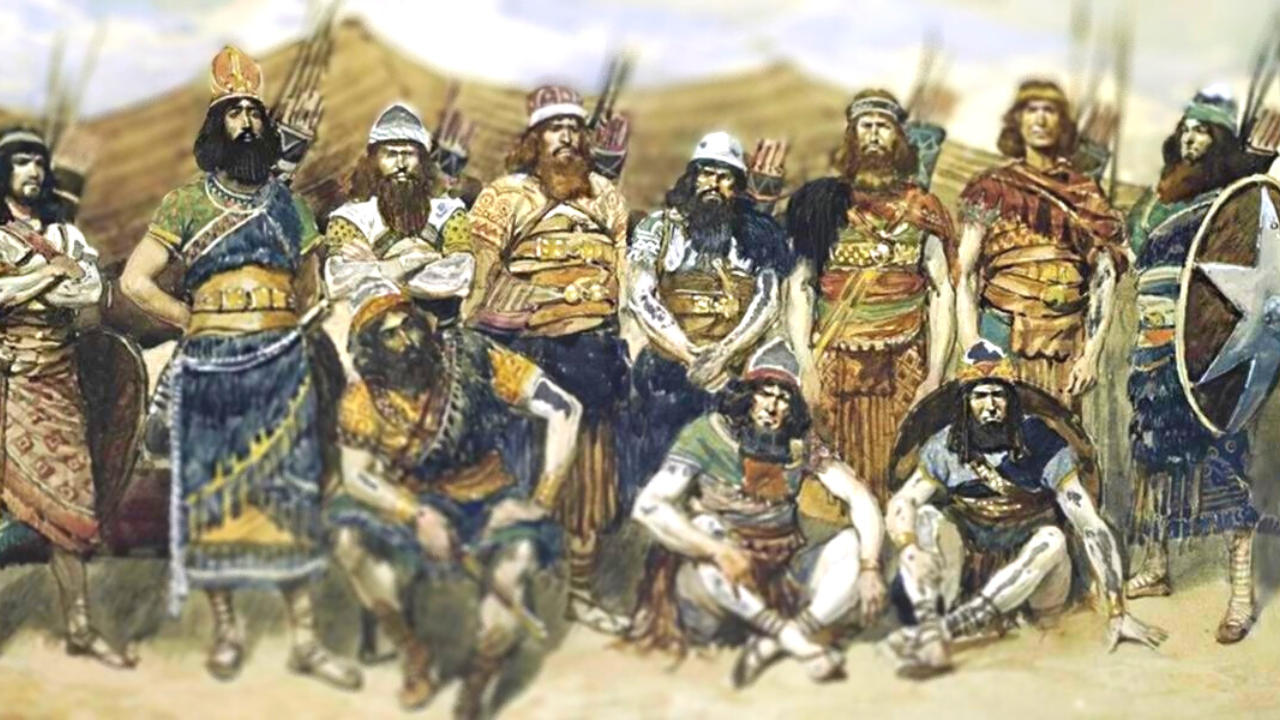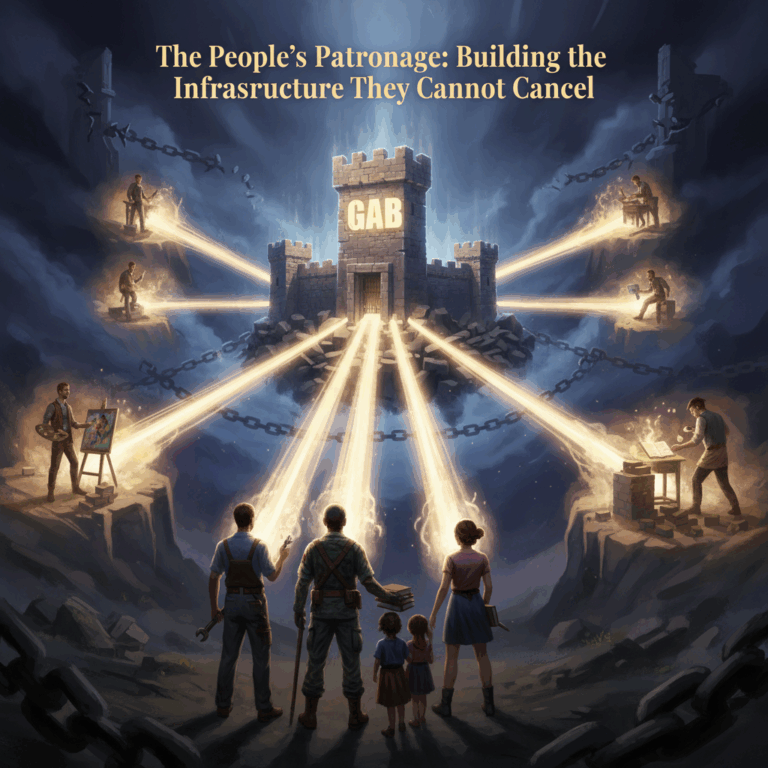King David’s Israel as a Model For Life in 21st Century America
David has been on the run from Saul, and now things are beginning to change. David has assembled a kingdom in exile that is growing more powerful, and Saul is waging war not only on David but on Yahweh Himself. For those with eyes to see, this passage is an example of how God’s people can not only survive godless, bloodthirsty tyrants, but prepare to rule after God removes them.
Catch the First Sermon in this series here.
Catch the Second Sermon in this series here.
Catch the Third Sermon in this series here.
Catch the Fourth Sermon in this series here.
Catch the Fifth Sermon in this series here.
1 David therefore departed from there and escaped to the cave of Adullam. So when his brothers and all his father’s house heard it, they went down there to him. 2 And everyone who was in distress, everyone who was in debt, and everyone who was discontented gathered to him. So he became captain over them. And there were about four hundred men with him.
1 Samuel 22:1-23 (NKJV)
3 Then David went from there to Mizpah of Moab; and he said to the king of Moab, “Please let my father and mother come here with you, till I know what God will do for me.” 4 So he brought them before the king of Moab, and they dwelt with him all the time that David was in the stronghold.
5 Now the prophet Gad said to David, “Do not stay in the stronghold; depart, and go to the land of Judah.” So David departed and went into the forest of Hereth.
6 When Saul heard that David and the men who were with him had been discovered—now Saul was staying in Gibeah under a tamarisk tree in Ramah, with his spear in his hand, and all his servants standing about him—7 then Saul said to his servants who stood about him, “Hear now, you Benjamites! Will the son of Jesse give every one of you fields and vineyards, and make you all captains of thousands and captains of hundreds? 8 All of you have conspired against me, and there is no one who reveals to me that my son has made a covenant with the son of Jesse; and there is not one of you who is sorry for me or reveals to me that my son has stirred up my servant against me, to lie in wait, as it is this day.”
9 Then answered Doeg the Edomite, who was set over the servants of Saul, and said, “I saw the son of Jesse going to Nob, to Ahimelech the son of Ahitub. 10 And he inquired of the Lord for him, gave him provisions, and gave him the sword of Goliath the Philistine.”
11 So the king sent to call Ahimelech the priest, the son of Ahitub, and all his father’s house, the priests who were in Nob. And they all came to the king. 12 And Saul said, “Hear now, son of Ahitub!”
He answered, “Here I am, my lord.”
13 Then Saul said to him, “Why have you conspired against me, you and the son of Jesse, in that you have given him bread and a sword, and have inquired of God for him, that he should rise against me, to lie in wait, as it is this day?”
14 So Ahimelech answered the king and said, “And who among all your servants is as faithful as David, who is the king’s son-in-law, who goes at your bidding, and is honorable in your house? 15 Did I then begin to inquire of God for him? Far be it from me! Let not the king impute anything to his servant, or to any in the house of my father. For your servant knew nothing of all this, little or much.”
16 And the king said, “You shall surely die, Ahimelech, you and all your father’s house!” 17 Then the king said to the guards who stood about him, “Turn and kill the priests of the Lord, because their hand also is with David, and because they knew when he fled and did not tell it to me.” But the servants of the king would not lift their hands to strike the priests of the Lord. 18 And the king said to Doeg, “You turn and kill the priests!” So Doeg the Edomite turned and struck the priests, and killed on that day eighty-five men who wore a linen ephod. 19 Also Nob, the city of the priests, he struck with the edge of the sword, both men and women, children and nursing infants, oxen and donkeys and sheep—with the edge of the sword.
20 Now one of the sons of Ahimelech the son of Ahitub, named Abiathar, escaped and fled after David. 21 And Abiathar told David that Saul had killed the Lord’s priests. 22 So David said to Abiathar, “I knew that day, when Doeg the Edomite was there, that he would surely tell Saul. I have caused the death of all the persons of your father’s house. 23 Stay with me; do not fear. For he who seeks my life seeks your life, but with me you shall be safe.”
The Cave of Adullam (22:1-5)
David flees to the cave of Adullam. Caves in the Bible are where you bury people. When you think of living in a cave, you should think of living in a tomb. Jesus, of course, was buried in a cave. David, in the wilderness, is experiencing a type of death. But it is a short-lived death, and we see a kind of resurrection here. His brothers and father’s household rallied to him. You will remember that David’s brothers were not always sympathetic, but here they are. No doubt their household has been greatly harassed by Saul. Not only that, but all Saul’s enemies, all those he had disenfranchised, everyone who owed money they could not pay (presumably because of the economic distress caused by Saul), and everyone who was unhappy with Saul as the king found a champion in David.
Then, just as in the previous chapter, David goes to an enemy of Israel, Moab, and has his family stay with the Moabite king. This was common in the ancient world for enemies of the current regime to seek refuge from a foreign enemy. And it is also interesting that Jesse is Ruth the Moabitess’s grandson, making Jesse at least 1/4 Moabite. It is not a coincidence that David chose the safety of his great-grandmother’s kin, even though she was wholly joined spiritually to the people of Israel.
After this, a prophet named Gad told David to flee to his people in Judah. What is interesting about this detail is who it is in Samuel and the Book of Kings that has prophets advising them. — The king. God would send a prophet to the king to tell Him how he was to rule or what he should do. And who has Yahweh sent His prophet to? David. The next king of Israel. What we have in the cave of Adullam is an Israel-within-Israel. A kingdom that is already-but-not-yet.
Saul Strikes Back (v. 6-23)
Saul’s court is also on the move, sitting on a makeshift throne under a tree in Ramah, spear in hand. And he is furious with the men of his tribe. He gave them great gifts, wealth, property, and high positions. Yet he accuses them of conspiracy against him. Saul has discovered that Jonathan has made a covenant with David and is furious that none of them have told him. Saul knows that Jonathan is not loyal to him but to David, just waiting for David to take power.
As Saul chastises his kinsman, who he thinks have betrayed him, Doeg the Edomite, from the previous chapter, appears and tells Saul about all that happened with David at Nob. The Edomite lies and says the priests inquired of God for David, on top of what actually had happened, giving him bread and Goliath’s sword.
Saul then brings all the priests of Nob to him at Ramah to inquire of Ahimelech about what truly transpired. Ahimelech pleads with him, saying that David is Saul’s most loyal servant and that he did not ask of the Lord for David. Ahimelech essentially pleads ignorance. Which, of course, because of David’s deception, was true! David lied to Ahimelech to protect him when this exact situation took place. But David did not anticipate the full extent of Saul’s madness.
Saul commands Ahimelech to be put to death, along with all the priests of Nob. But a strange thing happened. Perhaps Saul was correct to be angry with his men—as it turns out, they were more loyal to God than to him. His men refuse to murder the priests. Who is it who does Saul’s bidding? Doeg the Edomite. What is an Edomite? It is a descendant of Esau, Israel’s wicked brother. The blood feud between the Edomites and Israel that had existed over the centuries, when Israel was in the Wilderness and Edom refused to allow them safe passage to the Land of Promise. Centuries after our passage today, Edom would mock Israel as Babylon brings Jerusalem to destruction (Ps 137:7) and loot the fallen city (Oba. 10ff.). Later, an Edomite king ruling over Israel, named Herod, would slaughter Israel’s babies to attempt to kill Jesus. In Luke’s Gospel, Herod’s son participated in the condemnation of Jesus, along with the Sanhedrin and Pilate.
And Doeg does not just kill Yahweh’s priests. What else does he do? He carries out the ban on Nob. He killed everyone there: men, women, children, babies, and livestock. You only carried out the ban against the enemies of God to completely cut off their line. Saul was supposed to do this against Amalek, but he refused, a failure that would nearly destroy Israel centuries later in the Book of Esther. He had sympathy for the actual enemies of God, but for the priests of God, there was nothing but furious vengeance. What is this communicating about Saul? What does Saul think of himself? He is saying he is god by carrying out the ban against Nob. His enemies deserve the same treatment as God’s enemies.
The destruction of the priests at Nob also fulfills what God promised Eli would happen to his line. Yahweh told him that his house would be cut off. The last survivor of Eli’s house is Abiathar, who Solomon would later depose right after David died. This Abiathar is the heir of Eli, and he flees to David and tells him what had happened. Now, the Israel-within-Israel is complete.
Conclusion
You might wonder, what does this story about an iron age conflict between a mad king and his greatest warrior have to do with us here in 21st Century America? We live beneath a rule very much like Saul. Instead of wielding the sword God has given them against criminals and against those who do great evil, what do our rulers do? They use it to defend the murder of children. Our state is about to pass a bill that will allow the murder of babies right up to birth with zero restrictions whatsoever. Each week there is a new level of depravity our rulers stoop to, new horrors they foist upon us.
For many Christians, it is incredibly discouraging. It seems like things continue to get worse and worse. Some assume this means the end of time and space is near, and God will have us float up into the sky at some point. Others who don’t buy into end-times mania will still get wrapped up in an expectation that the collapse of America is right around the corner, which means we get a nice clean blank slate to start over.
Neither of these is how God wants His people to live. This does not mean throwing all caution to the wind and refusing to pay attention to things going on. You should follow trends and plan accordingly. But for 2000 years of Christian history, great world empires have risen and fallen, but God’s people have remained.
If you were living in Italy in the year 400, you might notice that things are not what they were like for your grandparents and great-grandparents. They were used to store shelves always being filled, a dozen eggs costing around a dollar, potholes actually getting filled, etc., and none of that happened. And then the Visigoths and the Huns invade. The collapse of Rome seemed like the end of the world, and in a way, it was. It would have been foolish for a Roman in 400 to put his head in the sand and pretend things were not in steep decline, but it would have been equally foolish for him to give in to despair. Christian civilization would continue on even as Rome slowly collapsed over centuries.
We are in a very similar position. And instead of despairing and hoping for either God to end it all any minute or everything to go Mad Max, we must look to David’s example in this passage. What was David doing? He was building a kingdom within the kingdom. He was bound by the Law of God not to rebel against God’s anointed, even when God’s anointed was trying to murder him. He was not going to take over by force, even though, with 400 fighting men, he could have begun to do so.
What did he do instead? He built a kingdom within the kingdom. He had men loyal to him. He had a prophet. He had the high priest. A miniature Israel was gathering to him. If you have eyes to see it, we see the very same thing with Jesus in the gospels. An Israel-within-Israel was gathering to the son of David, Jesus Christ. And Jesus makes this point in the Gospel of Matthew that He gave His church, His ekklesia, actual authority. In the Ancient Greek world, the ekklesia was the ruling council of a city-state. The church is a City of God within the Cities of Men. The church is David’s kingdom which is already-and-not-yet there in the cave of Adullam. When we are building the church, we are not just adding people to a membership roll of some social club. We are building an actual kingdom, one that will not only outlive the Globalist American Empire but will provide the spiritual foundation for what will replace it.
The charge to you then is this: you are David’s kingdom-in-waiting in the Cave of Adullam. You are Christ’s ekklesia, a City of God inside the City of Man. You are a kingdom waiting patiently to be given the authority to rule. So look to the example of David and do not grasp for what God has given you, nor despair over the fact that tyrants do great wickedness you are powerless to stop. Trust in the Lord Jesus Christ. He rules right now at His Father’s Right Hand, and you belong to Him. In the Name of the Father, the Son, and the Holy Spirit. Amen!

Andrew Isker is the pastor of 4th Street Evangelical Church in Waseca, MN. He is a graduate of Minnesota State University and Greyfriar’s Hall Ministerial Training School, and he has served churches in Missouri, West Virginia, and Minnesota. He is the author (with Andrew Torba) of Christian Nationalism, and the author of the forthcoming book, The Boniface Option. Andrew, his wife Kara, and their five children reside in his hometown of Waseca, MN. He can be found on Gab @BonifaceOption.





